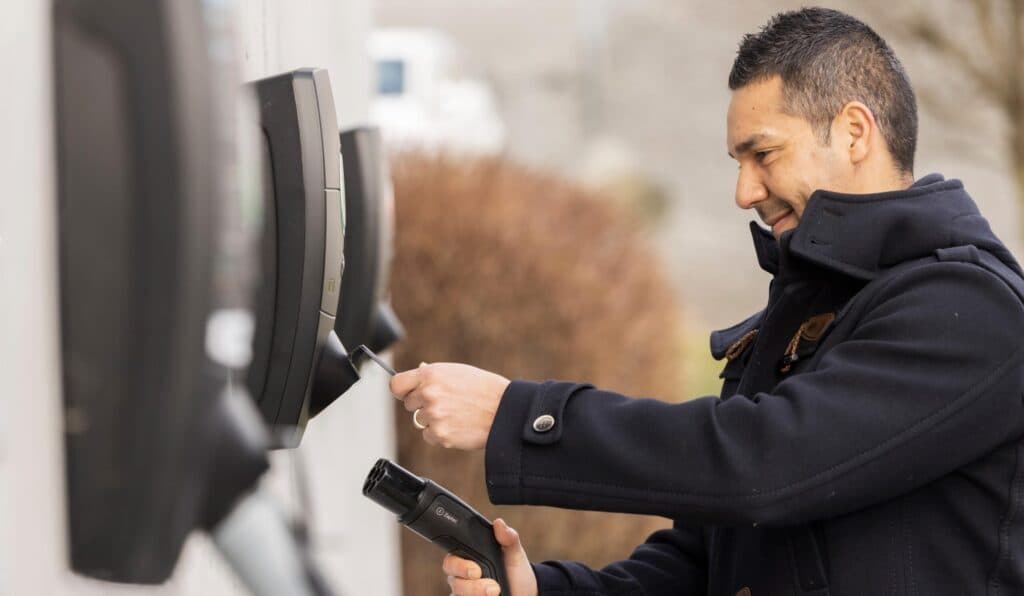There is generally enough current to charge tens of electric cars. The best charging stations are not tied to any one brand of car.

1. There isn’t enough current to charge electric cars
This is a myth. With a charging system that balances the current available, it is possible to charge tens of electric cars using a normal fuse. This makes it easy to start charging without raising costs for more current from your power company.
2. Higher currents reduce charging time
This is a myth. There is a limit on how much current can charge the battery of an electric car at any given time, and more current in the fuse box will not speed up the rate of charge.
3. People with petrol/diesel cars pay for charging stations for electric cars
This is a myth. Joint owners are currently obliged to facilitate charging. This requirement does not currently apply to housing cooperatives. Most joint owners therefore opt to pay for basic infrastructure such as a power supply to each parking space, while individual residents with electric cars buy their own charging stations.
4. Charging systems increase network charges
This is partly true and partly a myth. Small housing cooperatives and joint owners will not see their network charges increase as a result of offering car charging to their residents. Power companies require larger housing cooperatives and joint owners to pay a so-called time-of-use tariffs, which means that the total electricity bill goes up when lots of people use lots of electricity at once. With a charging system that controls charging in relation to time-of-use tariffs, the network charge can be kept down even if the charging system includes lots of charging stations.
5. All charging stations charge equally quickly
This is a myth. All approved charging stations currently on the market support a European standard that enables the charging of all types of electric cars, but not all charging stations charge equally quickly. There is reason to believe that electric cars of the future will be built so that their batteries can receive more current that electric cars at present. In order to avoid having to buy a new charging station suitable for a future electric car, it is therefore well worth choosing a charging station today that is future-proofed.
6. All charging systems are the same
This is a myth. Efficient charging systems for many electric cars make high demands of charging stations, infrastructure and software. By choosing a specialist supplier with many housing cooperative/joint owner customers that invests in technology, you can be certain that your charging system will cover your needs over time.
7. A charging system results in high operating costs
This is a myth. If the housing cooperative/joint owners want to divide electricity costs for charging completely accurately, most charging systems offer free reports on how many KWh each individual charging station has used so that the electricity cost can be calculated and paid by the owner of the charging station. If the housing cooperative/joint owners do not wish to monitor the charging system themselves, there are multiple operators in the market who offer services including billing, customer support, reporting and ordering.